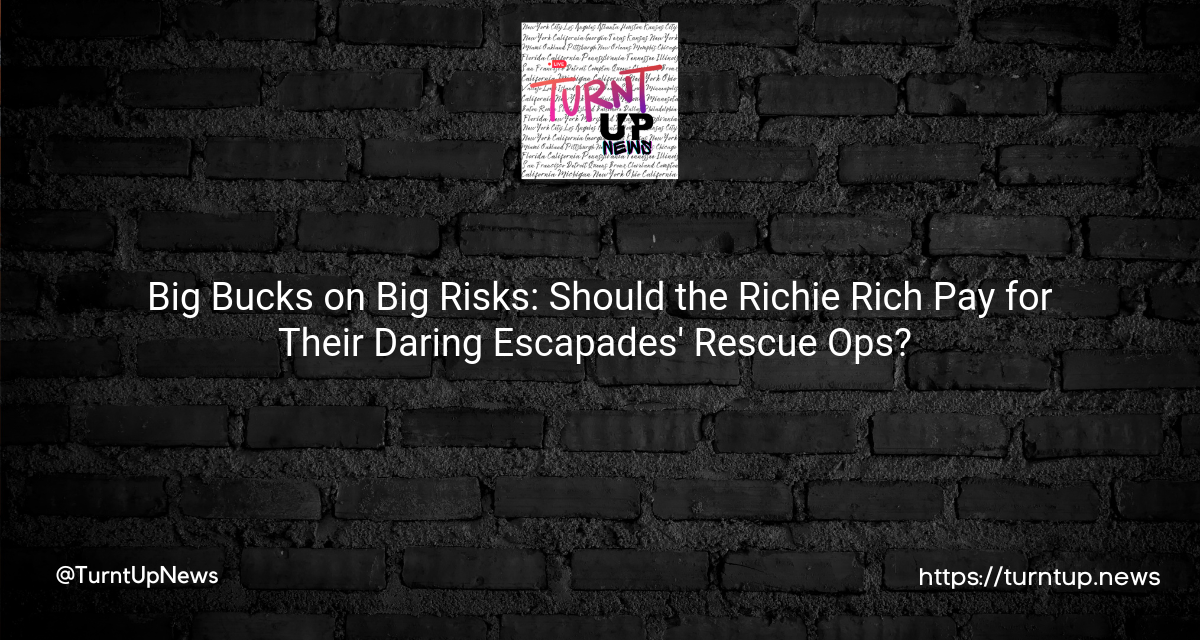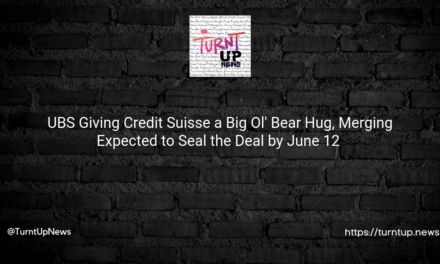💸Big Bucks on Big Risks: Should the Richie Rich Pay for Their Daring Escapades’ Rescue Ops? 🚁🔍
TL;DR;
When high-rolling thrill-seekers take on wild adventures and things go south, there’s usually a rescue operation involved. Question is, should these wealthy risk-takers or the public foot the bill? Recent events, like the lost submersible vehicle exploring the Titanic wreckage, has put the spotlight back on this prickly predicament. On one hand, these individuals have the funds to engage in such risky pursuits. On the other hand, should societal resources be spent on extricating them from their self-created pickles? 🤔💭
📰The Full Scoop:
We’ve all seen it, right? The rich and adventurous engaging in daredevil stunts and expeditions. They sail across oceans, scale sky-high peaks, and even blast off into space for fun. 🚀 But what happens when these voyages of bravado go awry? Who should bear the cost of their rescue attempts?
We’ve got a case in point here, folks! When Steve Fossett, a millionaire and a swashbuckler at heart, had his plane go missing in 2007, it wasn’t his first rodeo with rescue operations. Previously, he had two rescue ops organized thousands of miles apart. Who should pick up the tab after the search ended? 🏔️🔍💸
Cut to recent days, we had the hunt for a lost submersible vehicle in the north Atlantic while exploring the Titanic wreckage. The expedition had some big spenders onboard including a billionaire Brit and a prominent father-son duo from Pakistan. Now, tragedy strikes, and society is left to answer the difficult question: who pays for the pricey rescue attempts?
Consider this – the operator charged the passengers a whopping $250,000 each for this adventure. Yet, the U.S. Coast Guard, which was involved in the search, could not attribute a monetary value to Search and Rescue cases, quoting that they do not associate cost with saving lives. Heartwarming, sure, but at what cost to the taxpayer? 🚤🌊💰
Stephen Koerting, a U.S. attorney specializing in maritime law, confirmed that the Coast Guard can’t even legally collect reimbursement related to any search or rescue service. However, this doesn’t resolve the larger issue. Should the affluent explorers or the companies facilitating these adventures bear the burden of the rescue costs, instead of leaving it to the public and governments? 👀🧐
For example, in 1998, Fossett’s attempt to circle the globe in a hot air balloon led to a rescue op costing over $130,000 by the U.S. Coast Guard. He and billionaire Richard Branson had to be rescued when their hot air balloon crashed into the ocean. While Branson offered to pay if asked, the Coast Guard didn’t send the bill. A few years later, Fossett’s plane vanished over Nevada and another search ensued, costing taxpayers $685,998. After all that, should Fossett have had to pick up the tab?
We’re not saying that risk-taking is only for the wealthy. Many average Joes and Janes engage in daring activities too. Some states even have laws forcing these reckless adventurers to foot their own rescue bills. The officials and volunteers who conduct search operations, however, are against charging for help, fearing delayed requests for assistance leading to tragic outcomes. 👨🚒🏞️💔
It’s not just on land or air, even in the deep blue sea, wealthy sailors have required rescues





